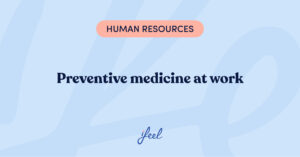In the competitive world in which today’s largest organisations operate, the ability to adapt to the fast pace of change and evolution is crucial to stay ahead of the curve. For this reason, effective decision-making in large companies is a critical competency that directly affects strategy, operational efficiency and financial results.
It is even more important in organisations with more than 1000 employees. Decisions involving such large and diverse teams involve complex considerations due to the various internal and external factors that characterise them.
In this context, leaders must adopt approaches integrating diverse leadership styles to maximise impact and optimise their decision-making processes in large companies. This article explores how leaders can use these strategies to guide their organisations towards a more successful future.
What does decision-making in large companies refer to?
Decision-making in business involves a structured process of determining the best option among several available alternatives. This process begins with identifying problems, followed by evaluating different solutions and selecting the most appropriate option to achieve the stated business objectives.
This process defines the company’s strategic direction and focus and is fundamental to developing productivity. By making informed decisions, companies can shape their long-term success and improve their ability to adapt to dynamic market challenges. Therefore, effective decision-making in large companies becomes essential for navigating a constantly changing business environment.
Strategic planning in decision-making
Strategic planning is essential to guide decision-making in large international companies, where teams are diverse and markets have varied characteristics. A well-defined strategy aligns decisions with the organisation’s long-term goals, ensuring that every step contributes to the company’s sustained growth and competitiveness.
Strategic planning helps leaders anticipate future challenges, facilitates a more efficient allocation of resources, and identifies opportunities for improvement. However, to be truly effective, leaders must maintain a broad, long-term vision and the ability to adapt quickly to changes in the work environment.
A flexible approach to strategic planning allows decisions to be adjusted according to new circumstances, such as changing market conditions or regulatory changes. This responsiveness is especially relevant in large corporations, where adapting quickly to environmental fluctuations can distinguish between maintaining a competitive position or falling behind.
Importance of leadership in decision-making
Leadership is a key factor in effective decision-making in large companies, as it defines how problems are solved, changes are managed, and strategies are implemented.
Therefore, chieff of staff, managers, or executives can opt for different leadership approaches, such as emotional, transformational, and inclusive leadership, and depending on the choice, this can significantly affect the outcomes of decisions. Let’s look at how each of these styles can benefit large companies:
| Type of leadership | Key characteristics | Impact on decision-making | Benefits for the company |
| Emotional leadership | – Ability to manage and understand one’s own and others’ emotions. – Encourages open communication and empathy. | – Improves decision quality by facilitating conflict resolution and reducing stress. – Promotes a collaborative environment that supports consensus-based decision-making. | – Increases team cohesion. – Enhances employee morale and well-being |
| Transformational leadership | – Focuses on inspiring and motivating teams. – Promotes innovation and constant change. | – Boosts creativity in effective decision-making. – Encourages adaptability by allowing the organization to respond swiftly to market changes | – Increases employee engagement. – Improves adaptability and competitiveness. |
| Inclusive leadership | – Values and promotes diversity of perspectives. – Facilitates equal participation in effective decision-making processes. | – Improves decision quality by including different viewpoints. – Reduces the likelihood of errors stemming from homogeneous approaches. | – Fosters a culture of equity and participation. – Increases innovation by leveraging diverse experiences and knowledge. |
In short, combining emotional, transformational, and inclusive leadership strengthens a company’s ability to make informed and effective decisions. While emotional leadership leverages emotional intelligence strategies to improve team cohesion and the ability to handle difficult situations, transformational leadership drives innovation and adaptability.
At the same time, inclusive leadership enriches the process by integrating diverse perspectives contributing to more balanced and effective decision-making. In fact, recent studies have shown that diverse teams outperform homogenous teams in decision-making 87% of the time.
Thus, by adopting these approaches, large companies can optimise their ability to adapt to a changing environment, which will positively impact their performance and sustainability.
Strategies to boost effective decision-making in large companies
To optimise effective decision-making in large companies, it is essential to implement strategies that enable leaders to deal effectively with complexity and uncertainty. Below are some key practices to improve the quality of decisions and align efforts with organisational goals:
1. Use of data and advanced analytics
Data-driven and effective decision-making are critical in large organisations. Leaders must use advanced analytics to gain relevant insights and make informed decisions. This involves collecting data from different sources, applying predictive analytics or artificial intelligence tools to identify patterns, predict outcomes and reduce the influence of intuition or personal biases.
According to research, companies that use data to guide their decisions optimise their operations, reduce costs and increase the accuracy of their decisions.
2. Encourage diversity of thought
Involving people with different perspectives, backgrounds and hierarchical levels in an effective decision-making process in large companies improves the quality of proposed solutions. Diversity of thought helps identify risks and opportunities that a homogenous approach might miss. It also promotes a positive, inclusive culture and strengthens organisational commitment.
“Across the board, we promote collaboration, mutual respect, and equal opportunity, fostering an organisation where every voice is valued and respected.”
– Lisa Porres, Chief People Officer at Spotahome, an ifeel partner company.
3. Apply scenario assessment techniques
Planning for different scenarios allows companies to prepare for possible environmental changes. Evaluating various options and their consequences helps leaders anticipate market fluctuations or regulatory changes.
One example of the importance of this practice is overcoming cognitive bias at work, such as confirmation bias. In a changing environment, leaders must question their assumptions and adjust their decisions based on new information.
To support this process, ifeel has designed a guide that facilitates identifying and mitigating cognitive biases, especially in selection processes, to improve the quality of informed decisions.

4. Decentralise decision-making
In large companies, decentralising the decision-making process can be beneficial. This allows leaders from different areas to act quickly based on their specific knowledge, speeding up effective decision-making and encouraging accountability and innovation within teams.
5. Encourage adaptability in effective decision-making in large companies
Adaptability is essential for large companies to thrive in a constantly changing environment. The ability to quickly adjust strategies in response to changes in the market, regulations, or technology allows organisations not only to survive but to seize new opportunities.
Leaders must promote a flexible and open mindset to change in their teams and prepare plans for alternative scenarios and contingencies. Adaptability also helps prevent and manage crises by questioning assumptions and adjusting decisions based on new information.
6. Implement continuous evaluation of the decision-making process
Regularly reviewing and evaluating the decision-making process helps to identify areas for improvement. Feedback from teams and analysis of past decisions allows for adjusting strategies and optimising focus on the future, facilitating organisational learning and strengthening the ability to adapt quickly.
These strategies enable large companies to improve the quality of their decisions, minimise risks, and increase their responsiveness in an ever-changing business environment.
Trust the leaders for large organisations
At ifeel, we know that effective decision-making in large companies is a complex process that requires a strategic and multifaceted approach.
To support companies in this process, our team of expert psychologists has crafted a comprehensive mental well-being solution designed specifically for large organisations. Our solution empowers HR leaders like you with personalised, data-driven insights to identify mental health challenges and improve workplace culture.
What I value most is the direct and close approach of ifeel professionals. It seems that they have also become part of the team and someone who is already embedded in our company dynamics, therefore someone who can be trusted to support us.
– Vasco Armés, Head of HR at PERI Iberia, an ifeel partner company.
By partnering with ifeel, you’ll receive actionable strategies to address employee well-being, reduce burnout, and increase engagement while creating a thriving and positive organisational culture. Our tailored mental health services offer structured support to employees, ensuring they have access to the care they need when they need it.
We hope you found this article on effective decision-making useful. Are you ready to transform your workplace? Request more information and discover how ifeel’s corporate mental well-being solution can help your team excel while enhancing employee satisfaction and productivity. Let’s work together to unlock your team’s potential.







